Laudato Si' Week 2023
Hope for the Earth. Hope for Humanity.
Laudato Si’ Week 2023 celebrates the 8th anniversary of the publication of Laudato Si’ by Pope Francis. A letter to all humanity inviting us to come together to care for our common home. “All of us can co-operate as instruments of God for the care of creation, each according to his or her own culture, experience, involvements and talents.”
The writings below, on the 7 Laudato Si’ goals are contributions from people across the diocese and give us an opportunity to pause, pray and determine how we too, can respond to “the cry of the earth and cry of the poor.”
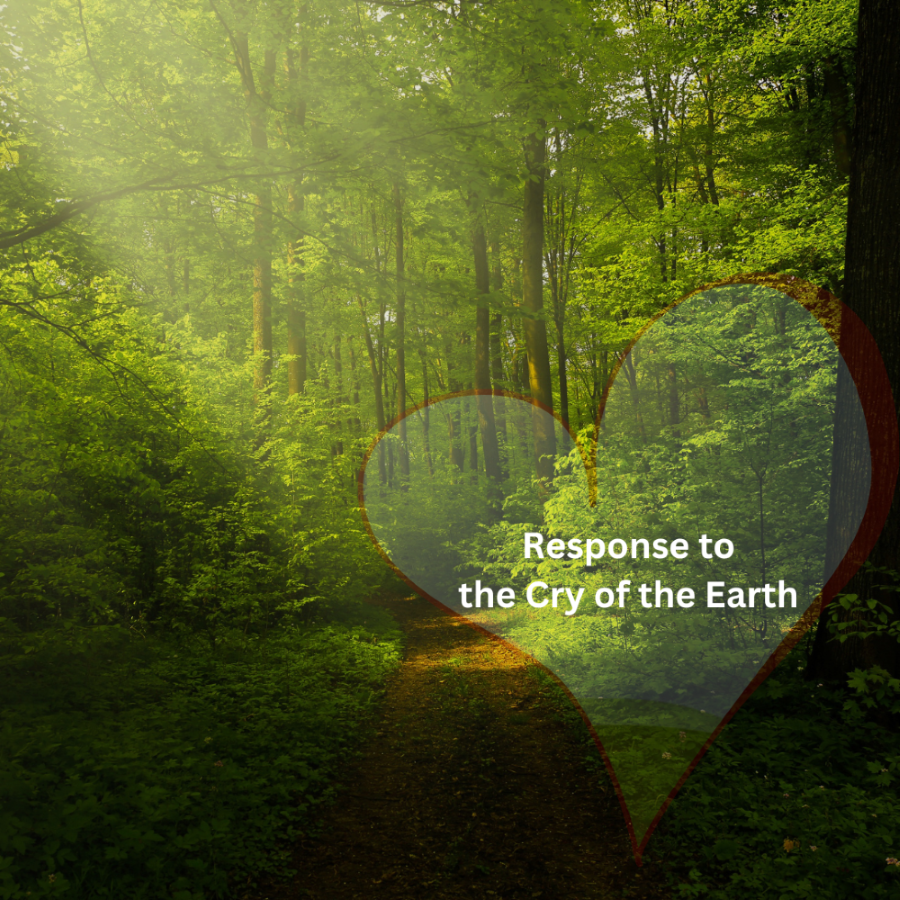
Response to the cry of the earth. The cry of the earth is not a new cry, but it is an urgent one and one we are struggling with. As we consider what our response should be, our desire and ability to act may be helped if we first stop and ask the question, what do we want most?
The latest report from the Intergovernmental Panel on Climate Change (IPCC) shows that we have already warmed by 1.1°C and without ‘deep, rapid and sustained global greenhouse gas emissions reduction’ further, catastrophic rises are unavoidable. Our world is likely to become—for us at least—unhabitable.
We have known this to be true for many years yet we haven’t (mostly) taken the opportunity to make the changes that we know we must. Carmody Grey, Assistant Professor of Catholic Theology at Durham University in her 2021 Hook lecture suggests that this is because we are “not governed primarily by what we take to be true, but what we take to be important” and that “we have to learn not to act on what we want now, but on what we want most.” This is a lesson, she says, that takes long and deep learning and is what faiths specialize in.
Jenny LeLean
Response to the Cry of the Poor Welcoming the stranger
St Peters Sanctuary Welcome hub first opened its doors in May 2022, welcoming over 45 people from Ukraine, with the aim of providing a safe and comfortable space where people could come together to share feelings, experiences and offer mutual support. Led by a small steering group which then recruited over 40 volunteers, the hub, along with the United Church has become a key part of the Winchester City of Sanctuary welcome stream.
Over the last year the hub has changed, the Ukrainian guests have become more settled, finding jobs or in education and instead the hub provides a welcome for those seeking sanctuary from all around the world, providing a sense of community and belonging.
We provide a mix of activities including CV writing and job interview preparation, craft activities, language practice, meditation and relaxation and signposting to other services. We also work closely with the Southampton and Winchester Visitors Group who offer specific advice and a befriending service to those seeking sanctuary through asylum.
Lesley Sheldon-Browning
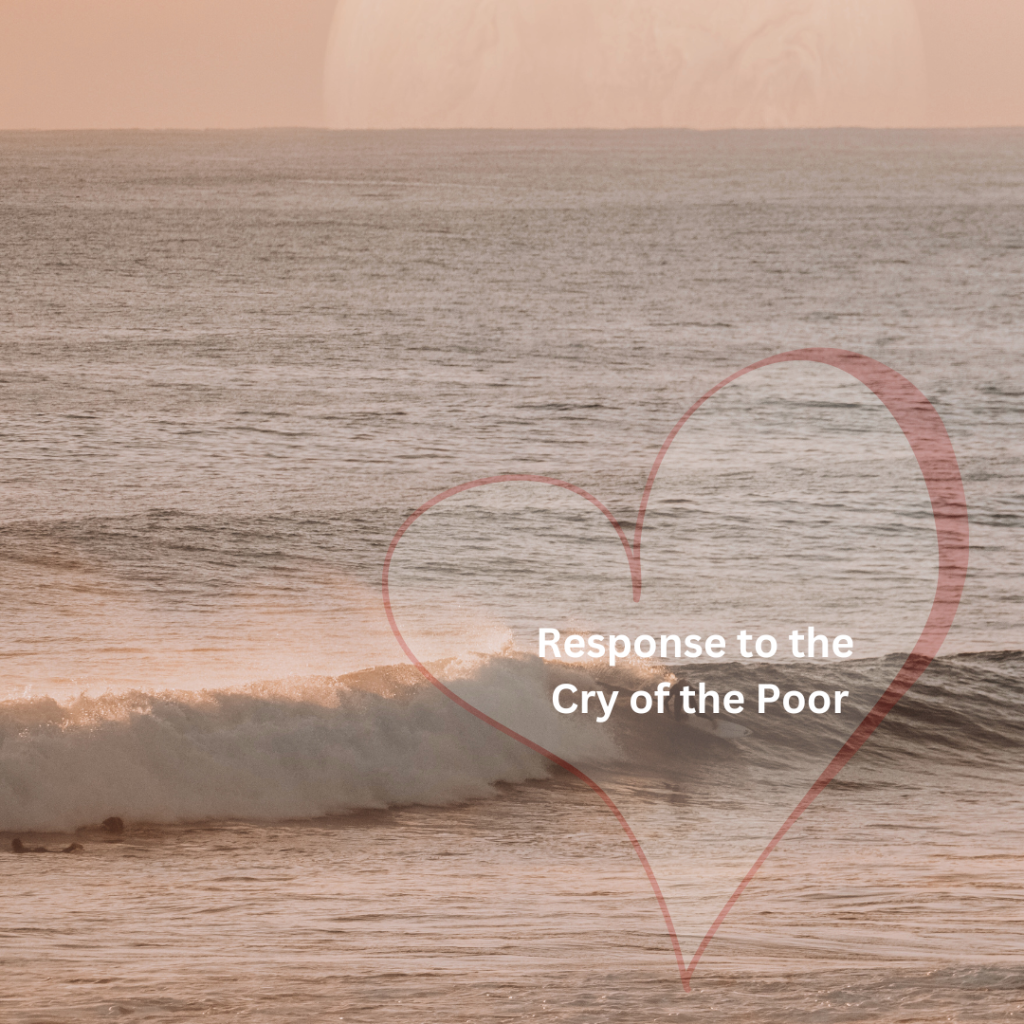
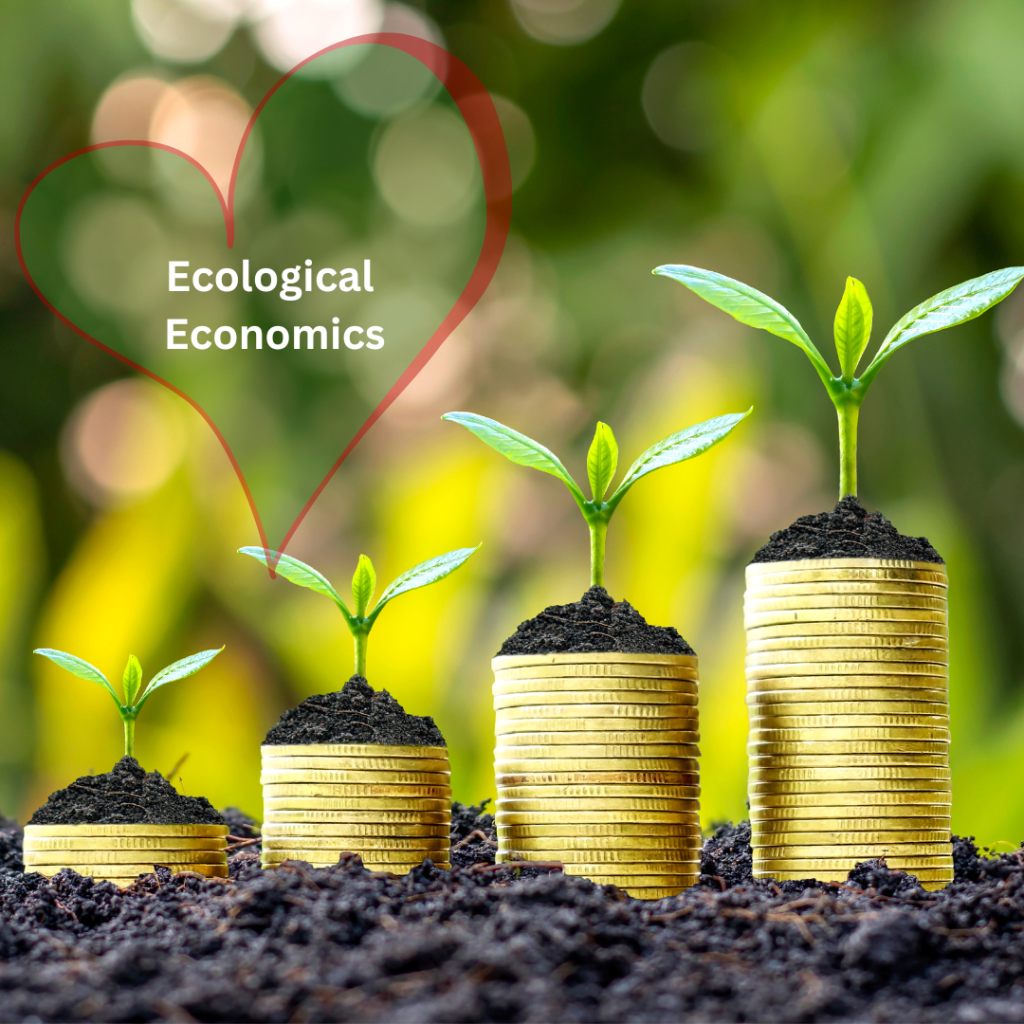
Ecological Economics is to recognise that the economy is a subsystem of human society and that human society is part of the global ecosystem.
The growth of the economy in its physical dimensions is limited by the fact that the economy is a subsystem of the ecosystem. The ecosystem is finite, non-growing, and materially closed and yet wealth creation continues to be based upon the model of a competitive market ruled by the laws of supply and demand. The result of this constant growth is climate change, biodiversity loss, pollution and unsafe labour practices.
You have sown much, and harvested little; you eat, but you never have enough; you drink, but you never have your fill; you clothe yourselves, but no one is warm; and you that earn wages earn wages to put them into a bag with holes. Haggi 1:6
Yet there is a different path. Educational campaigns, increases in recycled products, advances in environmental science, and eco-justice movements such as Fairtrade have led us to think about our patterns of consumption, the distance our food travels from farm to table and our carbon footprints.
We can reject activity that harms people and the planet and spend in sustainable forms of production and consumption. We can invest ethically to support both dignified work and protecting creation to ensure that both current and future generations can flourish.
The earth is the Lord’s and all that is in it, the world, and those who live in it. Psalm 24:1
Lucy Sayer
Adopting a Simple Lifestlye LiveSimply Award CAFOD
The LiveSimply award is an opportunity for parishes and schools to respond to Pope Francis’ invitation in Laudato Si’ to “work with generosity and tenderness in protecting this world which God has entrusted to us”.
The LiveSimply award is earned by communities who can show how they have been living:
- simply
- in solidarity with people in poverty
- sustainably with creation
The award celebrates what you have already done and inspires you to do more. It helps your community to live, not just more simply, but also more fully.
In Portsmouth Diocese we have six parishes that have achieved the LiveSimply award: – St John Bosco in Reading, St Peters in Winchester, St Joseph Havant, Immaculate Conception in Southampton, Our Lady & St Edmund in Abingdon , and English Martyrs in Reading who achieved the award in January 2023.
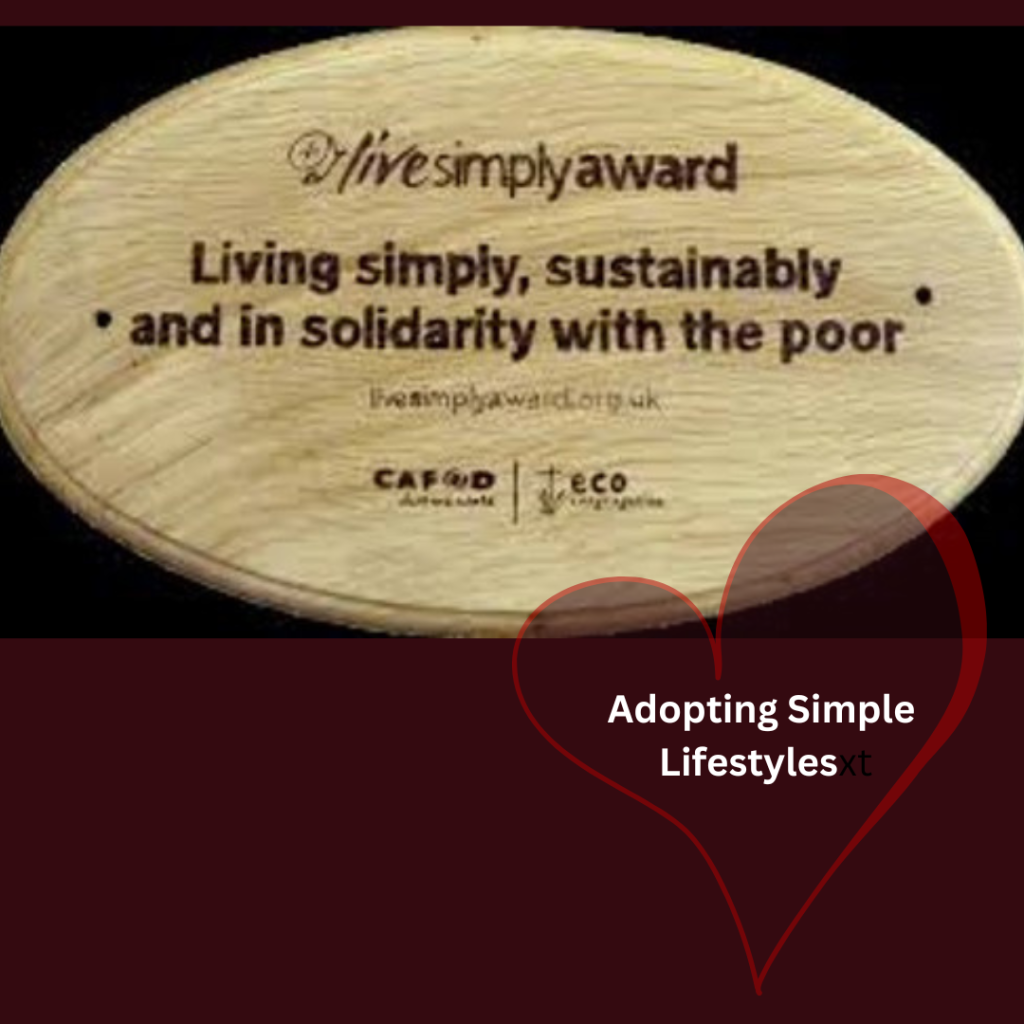
The LiveSimply award is a fantastic way to bring parishes together and you can include activities that parish groups are already doing for example donating to food banks, CAFOD fast days, recycling, plant swaps, Season of Creation masses refugee support, homeless projects …
For more information about the livesimply award look on the CAFOD website here Livesimply award (cafod.org.uk) and contact Jo Lewry CPC for CAFOD Portsmouth who is happy to come and talk to your parish about the award and support you throughout the process. [email protected] or phone 07710 094447
Jo Lewry
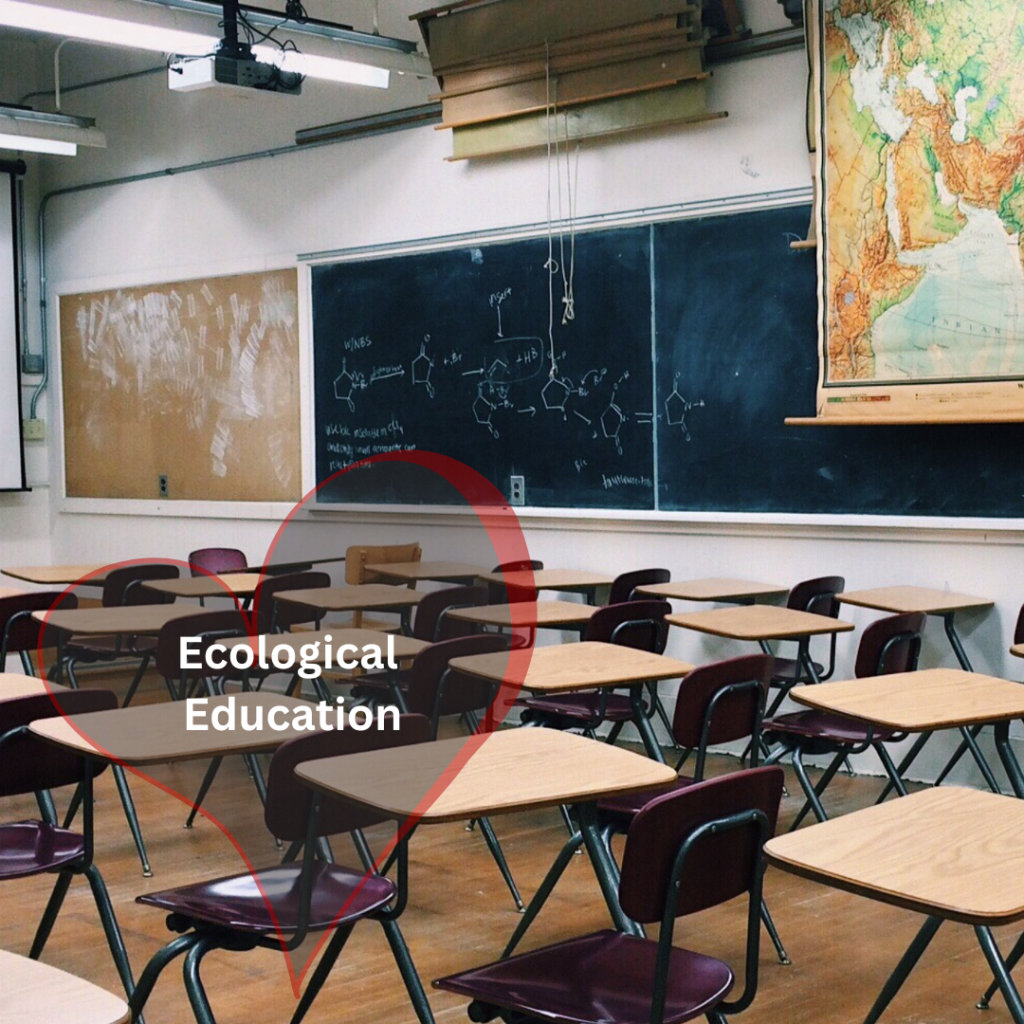
Ecological Education
Although embarrassing to admit, I can still recall some years ago, noticing CAFOD’s education and campaign resource focus moving towards climate and the environment and questioning, ‘why have they moved away from issues of poverty?’ Of course, now, we are all so much more aware of the impact of climate change on the poorest of our brothers and sisters and as educators we too, are called towards an eco-conversion.
As a school, we were inspired by a whole day of training by CAFOD to recognise that Everything is Connected, and that ecological education should be a thread running through all our subjects. Whether in design technology, checking the sourcing of materials, learning about fair trade in Food technology, bioethics in science; all subjects contain space to consider environmental/ biodiversity issues in the light of Laudato Si.
As educators in Catholic schools, our aim is to a foster love and appreciation of nature, that inspires our young people to become the changemakers our planet needs. We involve them to participate in campaigns for climate justice; holding our leaders to account for the pledges made but nor realised. We have taken small groups to climate change protests and have a thriving eco-schools’ group. The film ‘The Letter’ was shown to some of our classes this year and all those who watched were left wanting to be part of the solution.
The fine line between inspiring action and causing climate anxiety is an ongoing challenge for as we work with young people, and we always communicate the importance of keeping hope. However, with our planet already on Code Red, the responsibility of schools to inform and empower our young people to care for our Common Home is a teaching that can no-one in Catholic education should deal with lightly.
Teresa Cripps
Ecological Spirituality
In the beginning was the Word: the Word was with God and the Word was God. John 1:1
God said “let there be light!” and so the work of creation began. And He created the universe, the Galaxies, the solar systems, the stars and planets.
And He created a very specific star and around this created a very specific planet at a specific distance from that star and He created life.
Other planets too were there, but too close or too far from that specific star to hold life according to His laws.
He created the plants, the creatures to swim in the oceans, to walk the land and fly in the air.
Then He created man in His image and gave to man dominion over all that He had created so that man would use His creation for their benefit and care for it and tend to it.
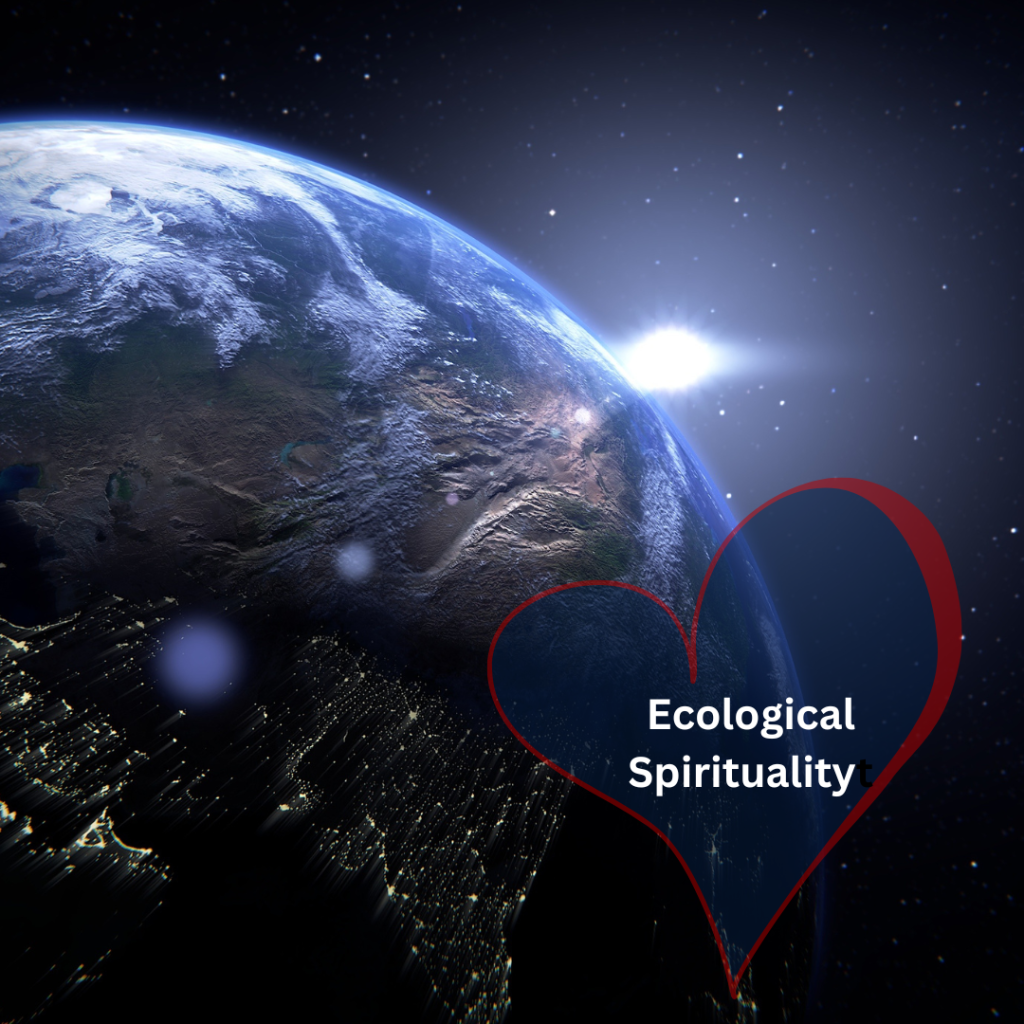
Being created in the image of God, man has awareness of self and the other, he also has a heart made to search for the God who created him. So pondering on these thoughts, man is be able to discern the presence of God in all created things and explore these wonders so that we can learn of Him and love Him as He wants us to.
For that is why He made us, to know Him, to love Him and to love our neighbour. So we cherish this world, this creation and use these precious resources for the benefit of all peoples now and those to come.
Dcn Michael Short
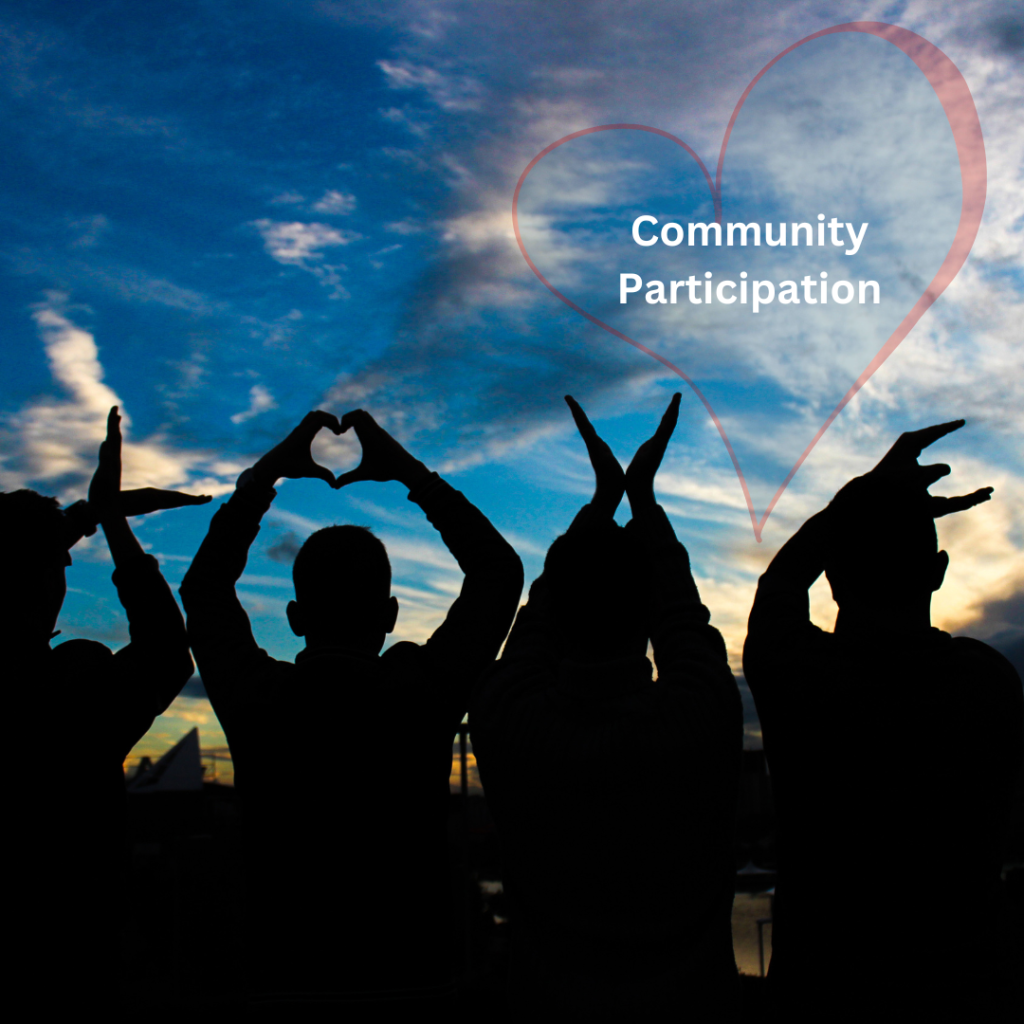
Community Involvement and Participatory Action
Once a month people from across the diocese come together for mutual support -all with an interest in making Care of our Common Home active in parishes.
The group began as a follow up from a zoom retreat weekend during lockdown when Bishop Philip spoke of the diocesan commitment to Laudato si’ action and his vision that parishes need also to be involved at local level to action in response to cry or the earth and the poor.
So from a chat together after the retreat we started to meet for an hour monthly inviting anyone with an interest in “living Laudato si.” Supported by CAFOD and Caritas we are able to keep abreast of new initiatives but also share ideas and report back on different activities parishes have tried to inspire us to more ideas – this year we have heard about different ways of showing the film The Letter, rejoiced with English Martyrs Reading, on receiving their Live simply Award and local initiatives like produce sharing, wild flowers for bees and clothes banks, all great ways of getting communities involved and opportunities for participation.
If you have ideas or would like to be inspired to “live Laudato Si “ why not join us on the second Thursday of the month? Contact [email protected] for details.
‘The Letter’ tells the story of a journey to Rome of frontline leaders to discuss the encyclical letter Laudato Si’ with Pope Francis. This is a powerful film demonstrating the impact climate change is already having on different parts of the world and the people living there. The official website gives free access to the film as well as resources and discussion points.
Maureen Thompson
Thank you to all of our contributors for taking the time to put these reflections together, you can also download these Laudato si goal reflections for your own personal use.

